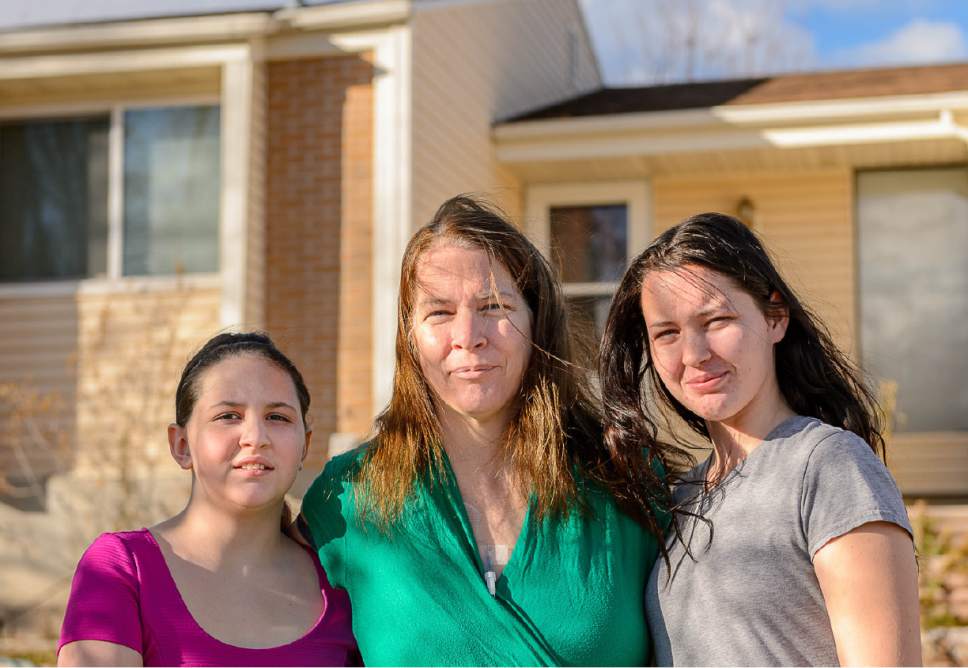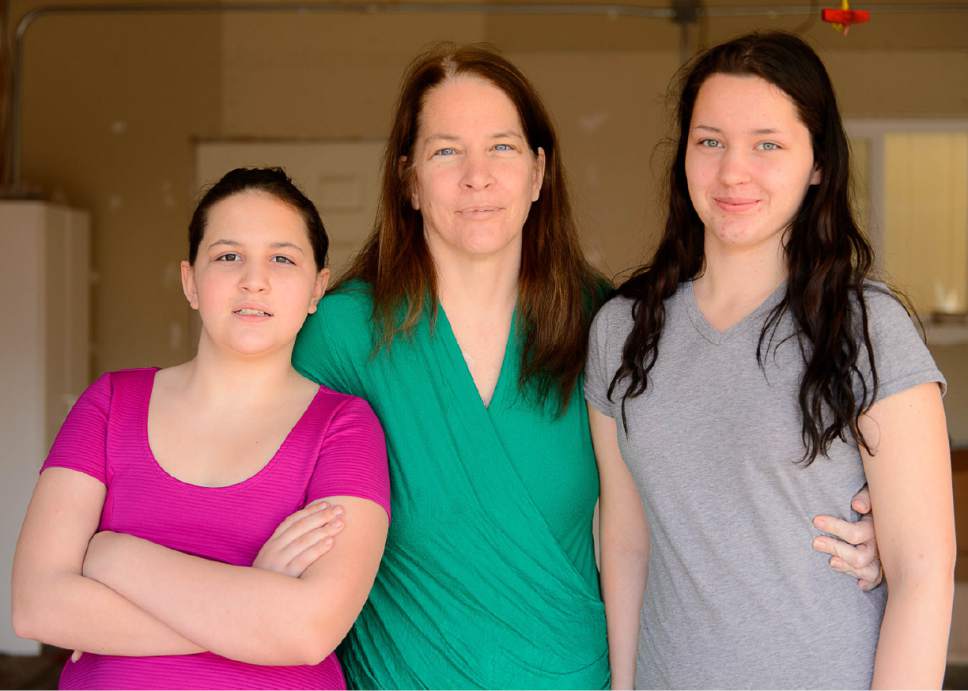This is an archived article that was published on sltrib.com in 2016, and information in the article may be outdated. It is provided only for personal research purposes and may not be reprinted.
Kimberly Gross and her two daughters are about to become homeless again. They are being evicted after finding a home through a federal-aid program that seeks private-sector housing.
As the holidays near, hope dims for Gross and her daughters, Petrina Westman, 14, and Destiny Westman, 10.
For the past year, they have lived in a small duplex in Taylorsville. But now, 3rd District Judge Laura S. Scott has ordered that Gross and her daughters vacate the duplex by Jan. 2.
Gross has not paid rent since October for several reasons, including a lack of funds — her doctor ordered her to stop working because of serious and deteriorating medical conditions — and the fact that her unit does not comply with Taylorsville housing regulations.
The 46-year-old mother broke into tears as the ruling was announced in court Friday. "I can't go back to the shelter," she said.
Gross found the duplex through Rapid Rehousing, a program funded through the U.S. Department of Housing and Urban Development (HUD) that is administered in Salt Lake City by The Road Home.
The program typically pays a deposit and the first three months rent.
Prior to the hearing and fearing eviction, Gross went to The Road Home shelter on Rio Grande Street downtown to seek a motel room for her family. But she was told the shelter was not filled to capacity — 1,062 — and therefore getting a motel room would not be possible.
She was also told that all the family rooms at the shelter are full and she and her daughters would have to sleep in a common area.
Earlier this year, Salt Lake City Mayor Jackie Biskupski and the City Council allocated funding for an overflow shelter at St. Vincent De Paul Dining Hall and an additional $110,000 for potential motel room use in the event the shelters fill up.
That program, however, apparently is not available to people like Gross and her daughters when the shelter still has beds available.
"This illustrates some of the problems we have as we realign the [homeless-services system]," said Councilman Derek Kitchen. "The Road Home [common area] is no place for an adult and children, let alone someone who is seriously ill."
Councilwoman Erin Mendenhall said that although the city provides the funds, it is up to service providers to determine how those monies are spent. "We haven't influenced, specifically, who qualifies for motel rooms through The Road Home," she said. "But Kimberly and her daughters are just the right fit."
There are programs for homeless people who are seriously ill through the Volunteers of America (VOA) and the Fourth Street Clinic. It remains unclear, however, if Gross can qualify for one of those programs, which are designed to be short term.
Where Gross and her daughters will live in the longer term also is problematic. Because she can't work, Rapid Rehousing seems an unlikely option.
In October 2015, she was pointed to what turned out to be an illegal dwelling in the basement of a house in a single-family neighborhood. It had no address or mailbox or front door — access was through a garage.
Beyond that, the property owned by Banded Properties of North Salt Lake had only one thermostat — in the upstairs apartment. The renters upstairs paid the electricity bill. Gross paid the heating bill even though she had no control on temperature setting. Gross said she had to come up with an annual rate of $96 per month on top of the $850 rent.
The city of Taylorsville found the basement apartment to be outside of its housing codes for a number of reasons, including the fact that the rental was in a zone limited to single-family dwellings.
According to HUD policies, federal funds cannot be used on units that are at odds with local laws and ordinances.
Further, federal regulations require that each unit be inspected by administrators before it can become part of the Rapid Rehousing program.
It's unclear whether The Road Home inspected the basement apartment. Officially, the nonprofit organization has said it follows all HUD regulations.
In the Friday court hearing, James H. Deans, an attorney representing Banded Properties, acknowledged that at the time the unit was first rented to Gross it was not within Taylorsville housing codes. He also argued that when the tenants upstairs moved, it was no longer an illegal duplex and Gross had access to the thermostat.
Deans told the judge that Banded Properties had given Gross a 54-day notice for eviction. He also asked the judge to extend that until Jan. 2.
An attorney representing Gross, Joshua T. Tandy, told The Tribune his client has filed a counterclaim against Banded Properties.
"They evicted her in a retaliatory fashion," he said, "because she reported the zoning violation."
The future for Gross and her daughters appears to be unsettled, at best.
It's going to be a tough holiday season at the Taylorsville household, Gross said. It's all they can do to get groceries, let alone Christmas presents.





